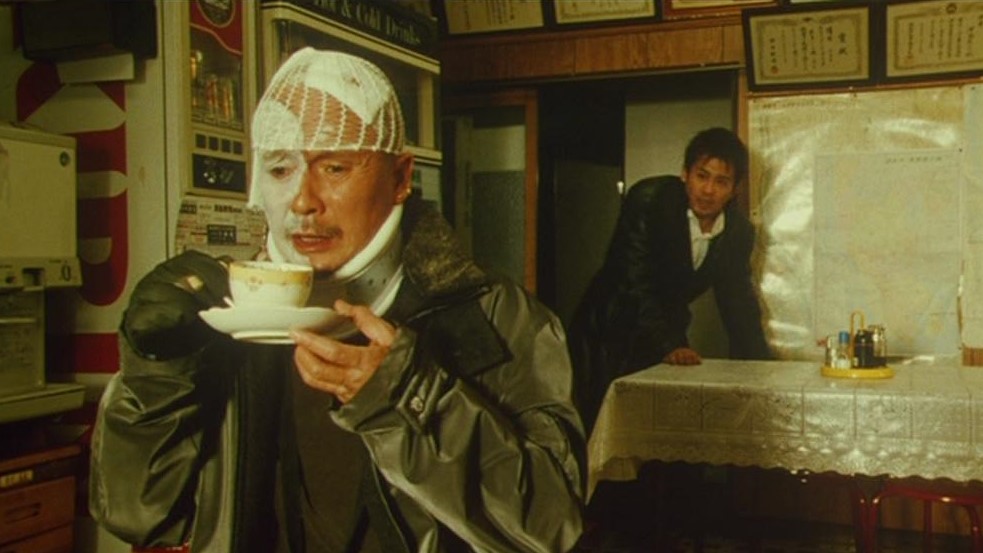Gozu
2003

Rated: R
Genre: Drama, Crime, Horror
Country: Japan
Run-Time: 2h 9min
Director: Takashi Miike
Cast
Hideki Sone…………….Minami
Show Aikawa………….Ozaki
Shōhei Hino…………….Nose
Renji Ishibashi………..Boss
The Japanese word “gozu” translates to “cow’s head”. In Japan, there is an urban legend about people who were driven insane after hearing about a horrific tale related to a cow’s head. It is worth reading about if, like me, you like that sort of thing.
Not that seeing Takashi Miike’s Gozu is sending anyone to an asylum, but it is about as bonkers as the big screen gets. Its plot includes skin suits, a gender swap, an unnatural birth, a cow man and lots and lots of milk. Have fun trying to follow this one.
The setup of Gozu seems like a simple one, at least for the first few minutes. Minami (Hideki Sone), a member of the Yakuza, is assigned the task of taking former mentor Ozaki (Show Aikawa) out of town under a false pretense to kill him. Ozaki’s behaviour has become increasingly erratic and the boss now views him as a liability. However, Minami’s conflicting loyalties hardly make him the ideal candidate for to carry out this hit.
Eventually Minami does the job- though not like he expected- but when he reaches the suburb of Nagoya he loses the body.
Gozu is a wonderfully surreal film that progressively ramps up its crazy. Even before we see title, we watch Ozaki swinging a chihuahua on its leash like a ball and chain before killing it. It is a disturbingly funny scene, but one that feels tame compared to the things that will happen during the film’s last hour.
In many ways, Gozu is the Lost Highway of Miiki’s Lynch-esque films. Sequences make sense taken in isolation, but the whole has no coherent narrative logic. Two actors may, or may not, be playing one character. All of the inhabitants of Nagoya either have odd quirks or are grotesque caricatures. But one thing that distinguishes Miike’s Gozu from Lynch is the sheer delight he always seems to be having as a filmmaker. In fact, when making Gozu, Miike seems to barely able to contain his pure uninhibited glee. Those who frequent the kind of film festivals that showcase this type of movie will understand and appreciate how the film’s most repulsive images are the ones that are also the most likely to induce a chuckle. (Just imagine seeing Gozu in a packed theater.) There is a lot of dark humour in this one.
Even the way the film is shot acts as a kind of irrelevant contradiction. The film looks too grainy to be shot in 2003. It looks cheap, like a 70s exploitation film. But Miike’s trademark practical effects have a realism that help to make this decent into homoerotic Hell a convincing one- the kind of which even Carl Jung could never dream. Very few directors could pull off the same quality of effects with the same budget. But then again, that is part of what makes Miike a legend.
And let’s give some credit to Sone for playing the perfect straight man reacting to an increasingly insane world.
My advice when watching Gozu is to not try too hard to find meaning in the film because that may be an impossible task. Some people have pointed out that Gozu takes the tropes found in Yakuza films to an extreme for satirical purposes. Others have viewed the film in terms of it being a supercharged psycho-sexual fantasy. Though there is relevance in these interpretations, I personally think Gozu is best viewed as a twisted, fun cinematic experience, the likes of which rarely get made.
This one is best if you just sit back and enjoy.
